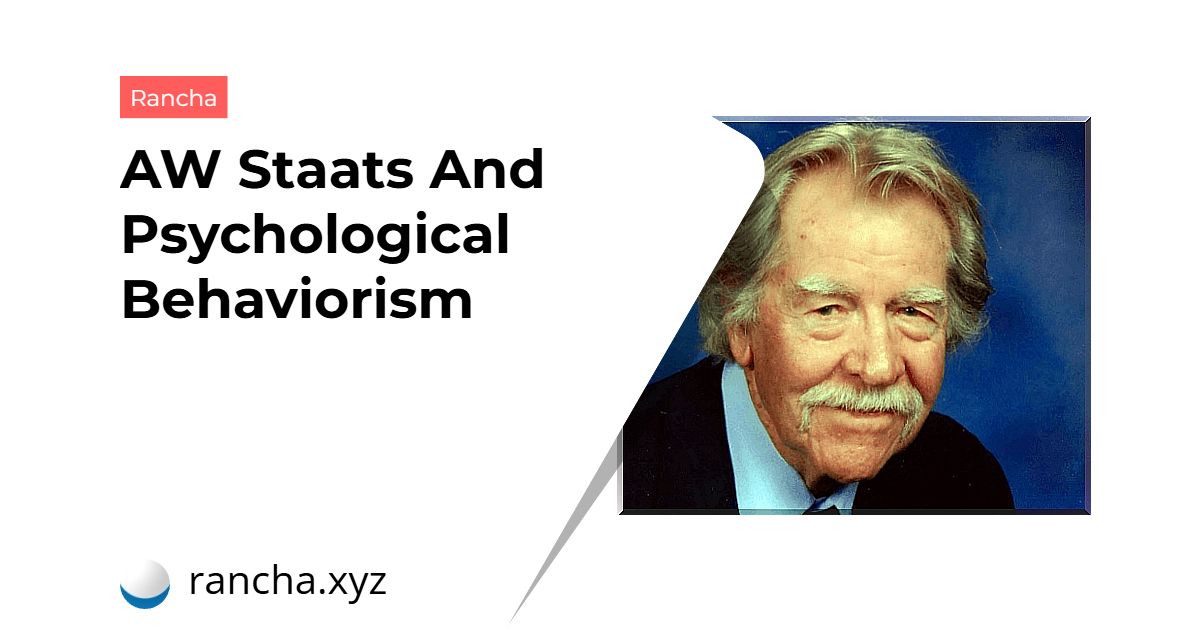Psychological behaviorism holds that personality can be explained through observable behavior. It was in 1912 that Watson developed behaviorism, the general theory that includes psychological behaviorism. Later, Skinner extended the theory even further with his formulation of radical behaviorism. AW Staats’ most recent approaches speak of a psychological behaviorism, which emphasizes a person’s personality and inner world.
Arthur W. Staats’ psychological behaviorism extends behaviorism into the field of psychology. It postulates that psychology can be explained through observable behaviors. The components of psychology include personality, learning and emotion.
In this sense, Staats was the first to propose that personality consists of a repertoire of learned behaviors that arise from the interaction of environment, biology, cognition and emotions. This personality theory is the main component of psychological behaviorism and therefore separates it from the theories of behaviorism that preceded it.
Psychological behaviorism and personality
According to Staats’ theory of personality, there are three behavioral repertoires that contribute to a theory of personality.
- The first is the sensory-motor repertoire, which includes sensory-motor skills and attention and social skills.
- The second is the cognitive-linguistic repertoire.
- The third is the emotional-motivational repertoire.
At birth, a baby lacks all these repertoires. Later, he acquires them through complex learning and becomes able to deal with various situations. An individual experiences life, to a large extent, according to his baggage, and as he grows, he develops a basic behavioral repertoire.

An individual’s basic behavioral repertoire and life situation will shape their behavior, which in turn will determine their personality profile. According to this model, biology interacts with the environment and contributes to personality formation.
Psychological behaviorism considers the study of personality to be very important. Personality tests are considered essential as they allow predicting what behaviors people will show and whether they will be at risk.
Tests also help identify the behaviors and contexts that facilitate them. This helps to design environments that produce the desired behaviors, preventing the development of undesirable behaviors.
education
Psychological behaviorism argues that as children develop, they learn basic repertoires on which other, more complex repertoires are built. This is called cumulative learning. According to psychological behaviorism, this is a type of learning unique to humans.
According to this cumulative learning model, when children learn a repertoire such as language, they can build that repertoire with other repertoires such as reading and grammar. From there, learning these reading and grammar repertoires leads to the acquisition of additional complex repertoires.
Staats’ research with his own children and in his studies emphasized the importance of parenting. He showed that early training of children in language development and cognitive development led to more advanced language development. The demonstration of greater intelligence in intelligence tests made this clear. Many studies carried out on this topic in the field of behavioral analysis support their findings.
Language
Staats indicates that we have a large number of words that elicit a positive or negative emotional response based on prior classical conditioning. As such, they can transfer their emotional response to whatever the correspondence.
The basic learning theory of psychological behaviorism also states that emotional words have two additional functions. They will serve as rewards and punishments for learning other behaviors, and also for causing approaching or avoidance behaviors.
Psychological behaviorism deals with various aspects of language. From its original development in children to its role in intelligence and abnormal behavior. In fact, it supports all of this with basic and applied studies. For example, Staats’ article published in Behavior Therapy in 1972 helped to introduce cognitive behavior therapy (language) into the field of behavior.

Psychological behaviorism and behavior disorders
Rather than accepting the concept of mental illness, psychological behaviorism argues that behavioral disorders are simply learned behavioral repertoires ; or, in any case, lack of conduct repertoires. This would prevent the individual from managing life’s events.
In fact, the theory of psychological behaviorism rejects the concept of mental illness. In contrast, behavioral disorders are composed of learned repertoires of abnormal behavior. Behavioral disorders are associated with the lack of assimilation of the basic repertoires necessary to adjust to vital demands.
Thus, psychological behaviorism suggests an approach linked to behavioral associations and consequences to treat behavioral disorders. It also suggests prevention through identification and intervention on the conditions that create them.
 rancha.xyz Be free to choose their own route to self-knowledge, health and balance of body and soul.
rancha.xyz Be free to choose their own route to self-knowledge, health and balance of body and soul.




